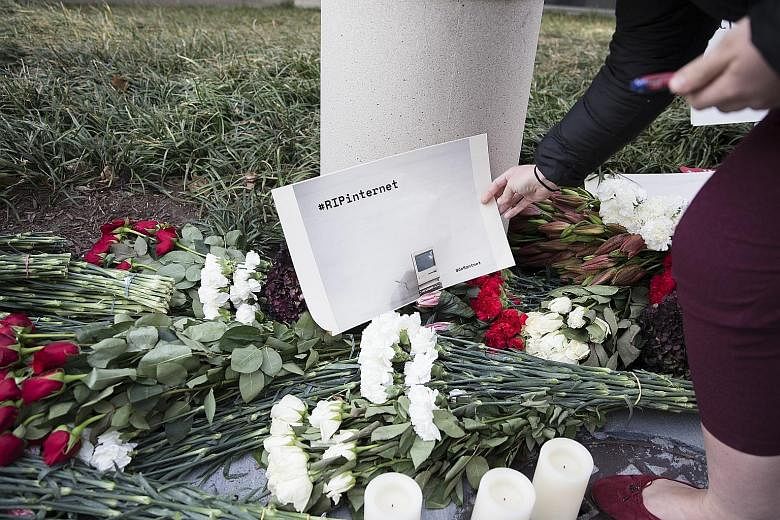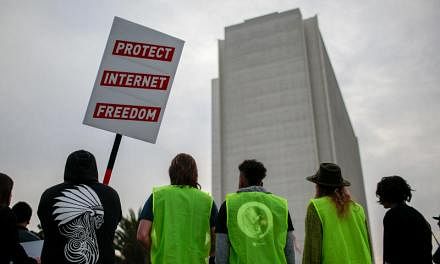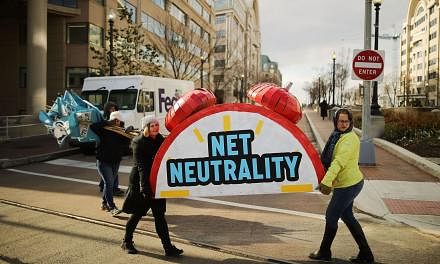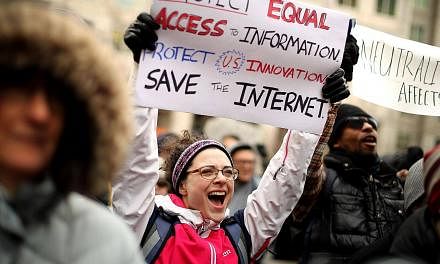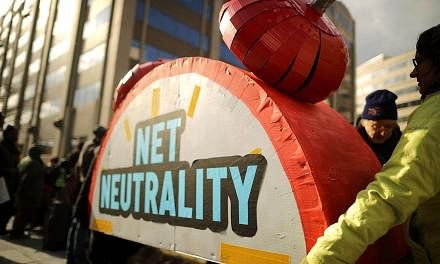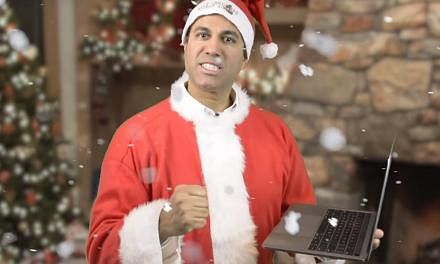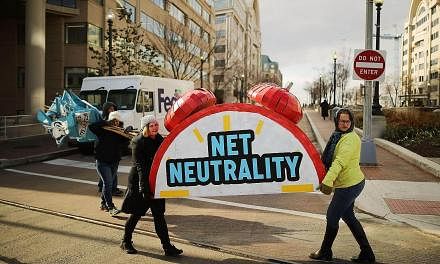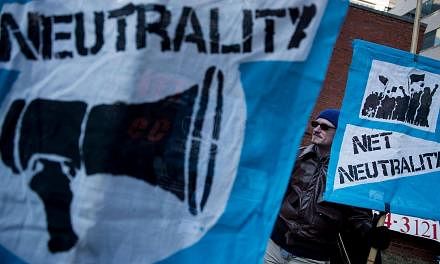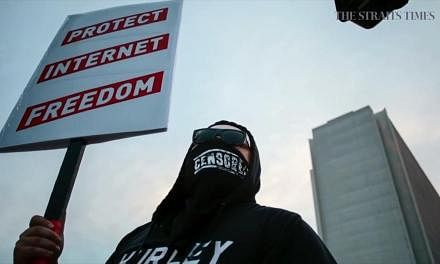WASHINGTON • The United States Federal Communications Commission (FCC) has voted along party lines to repeal landmark 2015 rules aimed at ensuring a free and open Internet, setting up a court fight over a move that could recast the digital landscape.
The approval of FCC chairman Ajit Pai's proposal in a 3-2 vote on Thursday night marked a victory for US Internet service providers and hands them power over what content consumers can access.
It is also the biggest win for Mr Pai in his sweeping effort to undo many telecommunications regulations since taking over at the agency in January.
Democrats, Hollywood and firms such as Google parent Alphabet and Facebook had urged Mr Pai, a Republican appointed by US President Donald Trump, to keep the Obama-era rules barring service providers from blocking, slowing access to or charging more for certain content.
The new rules give Internet service providers sweeping powers to change how consumers access the Internet, but must have new transparency requirements that will require them to disclose any changes to consumers.
The vote was held amid protests online and in front of the FCC headquarters in Washington.
White House spokesman Sarah Sanders told reporters the administration "supports the FCC's efforts. At the same time, the White House certainly has and always will support a free and fair Internet".
New York Attorney-General Eric Schneiderman, a Democrat, said in a statement that he will lead a multi-state lawsuit to challenge the reversal.
The FCC said the rules would take effect in a few months.
Mr Pai had argued that the 2015 rules were heavy-handed and stifled competition and innovation among service providers. "The Internet wasn't broken in 2015. We weren't living in a digital dystopia," he said on Thursday.
Consumers are unlikely to see immediate changes, but smaller start-ups worry the lack of restrictions could drive up costs or lead to their content being blocked.
Internet service providers say they will not block or throttle legal content but may engage in paid prioritisation. They argue that the largely unregulated Internet functioned well in the two decades before the 2015 order.
Republican FCC commissioner Mike O'Rielly said it was unlikely any Internet service provider would voluntarily submit to a "PR nightmare" by "attempting to engage in blocking, throttling or improper discrimination. It is simply not worth the reputation cost".
Still, Democrats have pointed to polls showing a repeal is deeply unpopular and say they will prevail in protecting the rules, either in the courts or in the US Congress.
A University of Maryland poll had found more than 80 per cent of respondents opposed a repeal. The survey of 1,077 registered voters was conducted online by the Programme for Public Consultation from Dec 6 to 8.
The 2015 rules were intended to give consumers equal access to Web content and prevent broadband providers from favouring their own content. Those practices are now allowed as long as they are disclosed.
The broadband industry cheered the move. USTelecom, a lobbying group representing Internet service providers and broadband companies, said they had "renewed confidence" to make network investments, particularly in rural communities. On the other side, trade group Internet Association, whose members include content providers Alphabet, Facebook and Pandora Media, said it was weighing legal options in a lawsuit against the FCC order.
The rollback could also galvanise young voters, a move Democrats hope will send millennials to the polls in greater numbers and bolster their chances in next year's elections. Democrats are hoping to paint the repeal as evidence Republicans are uninterested in young people and consumer concerns at large.
"The American public is angry," said dissenting FCC commissioner Jessica Rosenworcel, a Democrat. She added that the actions of the Republican majority have "awoken a sleeping giant".
REUTERS
